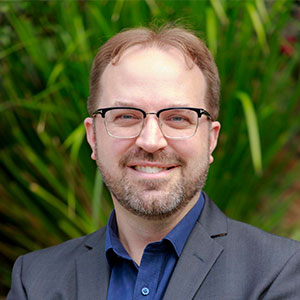Make Poverty History . . . Remember that? The white arm bands, the U2 concerts, the political pledges to increase aid spending. Or maybe you have even earlier memories of the Ethiopian famine in the early 1980s and the Live Aid concerts. Or perhaps your memory stretches back to the early days of Baptist World Aid, when a small group of faithful people started volunteering from a garage . . . with a prayer and vision to make life better for people living in poverty.
It seems we’ve been talking about, campaigning about, singing about, and giving generously to efforts to overcome poverty for decades, but has anything really changed? Turn on any TV, browse any news site, or even scroll through your social media feeds and you’d be forgiven for thinking that world is in a pretty dire state. But is this the real picture?
The Good News About Poverty Rates
Well, I’ve got some good news from you: it would seem we’re suffering from collective case of negativity bias. The news media thrives on bad news and, for some reason, our brains seem to be better at remembering the negative! Meanwhile lots of long, slow, positive stories are unfolding in the background, with very little attention. At least, not from news media.
Consider this: in the year 2000 we, as a global community, set ourselves the goal of halving poverty by 2015 by achieving a set of eight goals—the Millennium Development Goals. It sounded a tad idealistic and I wonder if it still spikes your cynicism radar slightly? Well guess what? We did it!
Between 1990 and 2015, the percentage of the world’s population living in extreme poverty plummeted from more than one in every three people (35.9 per cent) in 1990, to one in ten people (10 per cent) in 2015. That’s a huge achievement!
Infant mortality is an even better story. The number of children under five, dying from entirely preventable causes has fallen by 58 per cent since 1990. And if you take an even longer view into account, the average global lifespan back when Australia federated in 1901 was around 36 years old, today it has doubled to approximately 72 years old.
You Have Been Part Of This Change
Over the last sixty years, as you have sought to participate in what God is doing in the world by faithfully supporting the work of Baptist World Aid, you’ve been a part of this change. As we have endeavoured to be sensitive to hearing the voices of ‘the least of these’, you stood alongside us and supported children, families, and whole communities to tap into their own strengths and find ways to lift themselves out of poverty.
What does all this mean for the future and the even more optimistic goal of ending extreme poverty by 2030, that sits in the Sustainable Development Goals?
Where To From Here?
To start with, this time we get to begin from a position of positivity. Significant, life-changing progress can be made—you’ve been part of it! However, the task ahead becomes even more challenging. To reach that remaining 10 per cent we need to think harder and campaign more persistently on the structures and systems that lock people into poverty, we need go listen carefully and walk faithfully to accompany the most vulnerable people in their struggle to overcome exclusion, marginalisation, and stigma.
Yet somehow, hard as it may be, I think this might just be the kind of persistent poverty that God is most concerned about.
It’s the poverty that impacts on the child living with a disability, in a society where that means not only stigma but inaccessible schools and few viable transport options; it’s the poverty that sees a widow fighting to care for her family in a culture deeply shaped by patriarchy; it’s the poverty that affects the minority ethnic group forced off their land by powerful interests; and the poverty faced by families who are vulnerable to impacts of climate change, or living in regions scarred by war.
We should take courage from the change we have witnessed over these last sixty years of Baptist World Aid, even as we move forward to take up the challenge of finally healing the extreme poverty that breaks relationships and mars the identity of most vulnerable of God’s children.
Yes, we’ve come a long way in 60 years. Will you continue to walk alongside us as we aim to end poverty so all people can experience the fulness of life that God intends?

